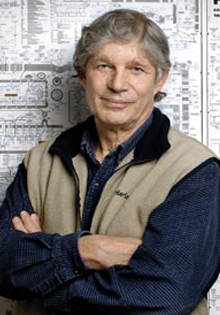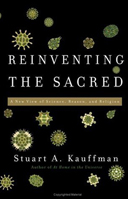 |
||
 |
Reinventing The Sacred |
Purchase Tickets Season Tickets for this event are available through our office at 503-232-2300 or online here! A season ticket represents a 40% savings off single ticket prices. Single Tickets for this event are available at Ticketmaster or PCPA Box Office. |
The science of complexity moves beyond reductionism to something new: a unified culture where we see God in the creativity of the universe, biosphere, and humanity |
||
Dr. Stuart Dr. Kauffman moved to Calgary, Alberta in 2004 after being appointed director of the IBI and professor to the departments of Biological Sciences and Physics and Astronomy in the U of C’s Faculty of Science. Shortly after, in May 2005, he was named an iCore Chair in Biocomplexity and Informatics (iCore, or Informatics Circle of Research Excellence, is a program established by the Government of Alberta to foster world-class, university-based research). Originally a medical doctor, Kauffman is an emeritus professor of biochemistry at the University of Pennsylvania, and a seminal member and an external professor of the Santa Fe Institute. Also a MacArthur Fellow and a Trotter Prize winner, Kauffman has published three major books, among them is At Home in the Universe: The Search for the Laws of Self-Organization and Complexity (1995), which the Oxford University Press says “weaves together the excitement of intellectual discovery and a fertile mix of insights to give the general reader a fascinating look at this new science − and at the forces for order that lie at the edge of chaos.”
|
Complexity Theory
|
|

